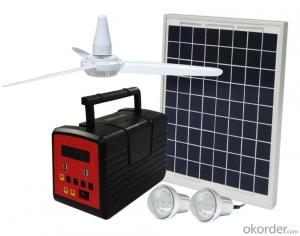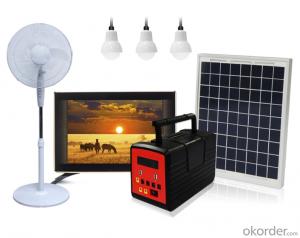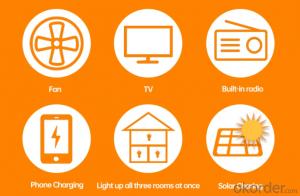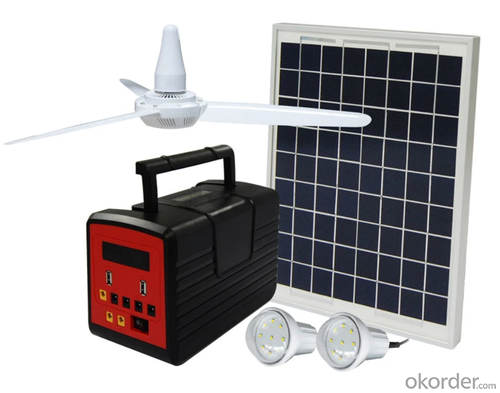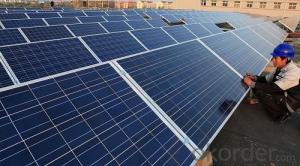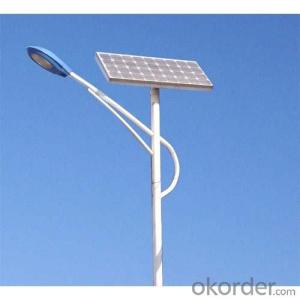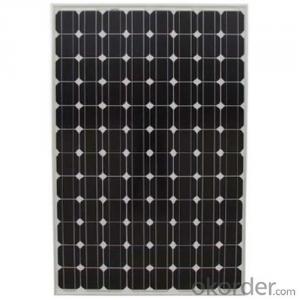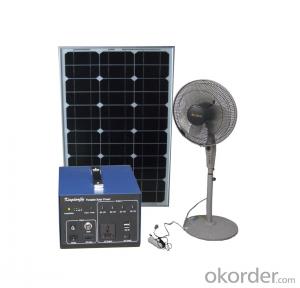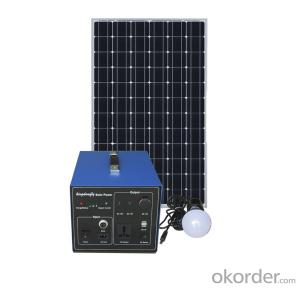Portable Solar Energy Systems with Big Solar Panel LED Light Product Radio MP3
- Loading Port:
- Shekou
- Payment Terms:
- TT OR LC
- Min Order Qty:
- 1 set
- Supply Capability:
- 500 set/month
OKorder Service Pledge
OKorder Financial Service
You Might Also Like
Specification
1. Description and specifications of Portable Solar Home Energy Power System with Big Solar Panel LED Light Product Radio MP3
Model NO. PS-K025L2
Battery: 11.1V/13000 mAh Li-ion
Bulbs: 3*3W with 5m Cable
Stand Fan: 16 Inch
Function:Lighting, Phone Charging, Radio, MP3, TV, Fan
Charging Time:6-8 H Under Sufficient Sunlight
Working Time: 14h for 3 Lamps; 22h for 2 Lamps; 43h for 1 Lamp
Accessories: 5-in-1 Charging Cable
2. Features of Portable Solar Home Energy Power System with Big Solar Panel LED Light Product Radio MP3
- All-in-1 DIY design, just need to plug & pla
- Multifunctional Lighting & 2 USB phone charger & TV & DC ceiling fan & FM radio and MP3
- 5*DC 12V output for powering different DC appliance
- Lighting up 3 rooms at the same time, max can connect 5 bulbs
- 2 DC Charging input to charge battery, by solar or electricity
- Battery indicator to show battery capacity to remind you charge in time
3. Pictures of Portable Solar Home Energy Power System with Big Solar Panel LED Light Product Radio MP3


4. Packages
Sea transport packages
- Q: How do solar energy systems impact the reduction of energy transmission losses?
- Solar energy systems help reduce energy transmission losses in multiple ways. First, solar energy systems generate electricity at or near the point of consumption, eliminating the need for long-distance transmission lines. This reduces transmission losses that occur when electricity is transported over extensive distances. Additionally, solar energy systems operate on a decentralized model, meaning they are often installed on rooftops or in close proximity to the consumers. This proximity further reduces transmission losses as the generated electricity does not have to travel far to reach the end-users. Furthermore, solar energy systems convert sunlight directly into electricity without the need for intermediate steps like combustion or steam generation. This direct conversion eliminates the energy losses that occur during these intermediate processes, making solar energy systems more efficient in converting sunlight into usable electricity. Overall, solar energy systems contribute significantly to the reduction of energy transmission losses by generating electricity locally, minimizing the need for long-distance transmission lines, and operating on a direct and efficient conversion process.
- Q: How do solar energy systems handle excess power generation?
- Solar energy systems handle excess power generation through a process called net metering. When the system generates more electricity than is being used, the excess power is sent back to the grid, and the owner receives credits for the excess electricity. These credits can then be used during times when the system is not generating enough power, such as at night or during cloudy days, allowing for a more balanced and efficient use of solar energy.
- Q: How do solar energy systems impact the electricity grid?
- Solar energy systems have a significant impact on the electricity grid by reducing the demand for traditional power sources. When solar energy is generated, it is fed into the grid, decreasing the need for electricity from fossil fuel power plants. This helps to lower carbon emissions and reduce reliance on non-renewable energy sources. However, the intermittent nature of solar power production can create challenges for grid operators in managing fluctuations in supply and demand. Overall, solar energy systems play a crucial role in transforming the electricity grid towards a more sustainable and resilient future.
- Q: What is the warranty period for solar energy systems?
- The warranty period for solar energy systems typically varies depending on the manufacturer, but it is commonly between 10 to 25 years.
- Q: Can solar energy systems be used in areas with frequent lightning strikes?
- Yes, solar energy systems can be used in areas with frequent lightning strikes. While lightning strikes can pose a risk to any electrical system, including solar panels, there are measures in place to mitigate this risk. Solar panels are designed to withstand various weather conditions, including lightning strikes. They are built to be durable and capable of handling external stressors, such as electrical surges caused by lightning. Additionally, solar panels are grounded using lightning protection systems to divert the electrical charge safely into the ground, reducing the risk of damage to the system. Furthermore, solar energy systems typically include surge protection devices and lightning arresters that help dissipate and redirect electrical surges caused by lightning strikes. These protective measures help safeguard the system and prevent any potential damage. It is important to note that while solar energy systems can generally withstand lightning strikes, it is still recommended to consult with a professional installer and follow local electrical codes and regulations to ensure proper installation and protection against lightning strikes.
- Q: Can solar energy systems be used in powering printing presses or publishing houses?
- Yes, solar energy systems can be used to power printing presses or publishing houses. Solar panels can generate electricity from sunlight, which can be used to power the various equipment and machinery required in printing or publishing processes. Additionally, solar energy systems can help reduce electricity costs and environmental impact, making them a sustainable and viable option for powering these operations.
- Q: Can solar energy systems be used in all climates?
- Solar energy systems can be used in various climates, but their efficiency and performance may vary. While solar panels can still generate electricity in colder or cloudier climates, their output may be lower compared to sunny regions. However, advancements in technology and the use of more efficient solar panels have made it possible to harness solar energy in a wider range of climates, making it a viable and sustainable option for many locations around the world.
- Q: Can solar energy systems be used for powering off-grid recreational vehicles?
- Yes, solar energy systems can be used to power off-grid recreational vehicles. Solar panels can be installed on the roof of the RV to capture sunlight and convert it into electrical energy, which can then be used to power various appliances and systems within the vehicle. This not only provides a sustainable and environmentally-friendly power source but also allows RV owners to enjoy freedom and independence from traditional electrical hookups while on their travels.
- Q: How does the efficiency of solar panels vary across different manufacturers?
- Solar panels can indeed exhibit varying levels of efficiency depending on the manufacturer. There are multiple factors that contribute to this variability. To begin with, the efficiency of solar panels can be greatly influenced by the quality and type of materials utilized during production. Manufacturers often employ different types of silicon, such as monocrystalline or polycrystalline, which possess differing efficiency levels. Monocrystalline silicon panels generally outperform their polycrystalline counterparts in terms of efficiency. The manufacturing processes employed by different companies can also impact the efficiency of their solar panels. Manufacturers with more advanced and precise techniques are capable of producing panels with higher efficiency. This encompasses factors such as the thickness of the silicon layers, the quality of anti-reflective coatings, and the precision of cell alignment. Research and development efforts also play a significant role in enhancing the efficiency of solar panels. Certain manufacturers heavily invest in research to develop new technologies and techniques that improve panel efficiency. This often leads to the creation of more efficient solar cells and an overall improvement in panel performance. Furthermore, the efficiency variation among different manufacturers can be attributed to product design and engineering. Some companies prioritize optimizing panel design to maximize light absorption and minimize energy losses, resulting in higher efficiency. This includes aspects such as the number and arrangement of cells, the size and spacing of busbars, and the integration of bypass diodes. The level of quality control and testing procedures implemented by manufacturers can also impact panel efficiency. Manufacturers that adhere to strict quality control measures and comprehensive testing protocols are more likely to produce panels with higher efficiency rates. This enables them to identify and minimize any defects or issues during the production process. Additionally, it is important to consider that the efficiency of solar panels can also be influenced by external factors like temperature, shading, and orientation. Different manufacturers may have varying levels of tolerance to these external factors, resulting in different performance levels under real-world conditions. In conclusion, the efficiency of solar panels can vary across different manufacturers due to factors such as material quality, manufacturing processes, research and development efforts, product design, quality control, and external factors. Consumers should take these factors into consideration when comparing solar panels from different manufacturers to ensure they select the most efficient option for their specific needs.
- Q: How much does a solar energy system cost?
- The cost of a solar energy system can vary depending on various factors such as the size of the system, location, equipment used, and any additional installation or maintenance requirements. On average, a residential solar energy system can range anywhere from $10,000 to $30,000 or more. However, it is important to note that there are various incentives, tax credits, and financing options available that can help reduce the overall cost and make solar energy more affordable for homeowners.
Send your message to us
Portable Solar Energy Systems with Big Solar Panel LED Light Product Radio MP3
- Loading Port:
- Shekou
- Payment Terms:
- TT OR LC
- Min Order Qty:
- 1 set
- Supply Capability:
- 500 set/month
OKorder Service Pledge
OKorder Financial Service
Similar products
Hot products
Hot Searches
Related keywords
